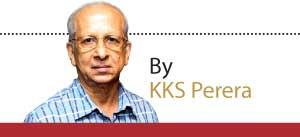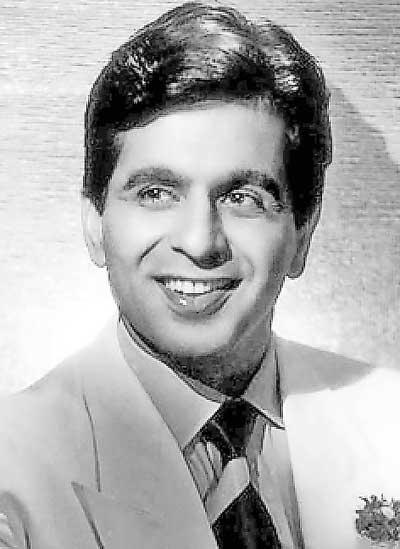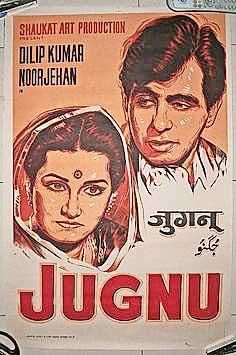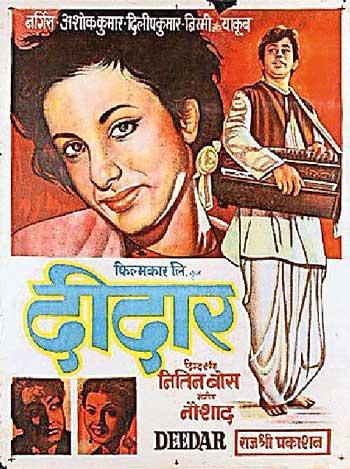12 Jul 2021 - {{hitsCtrl.values.hits}}
- Dilip, the legendary actor left behind an incredible inheritance of films and movie admirers, bade goodbye to his millions of fans of over three generations at the age of 98
- The inaugural recipient of the Filmfare’s Best Actor award, Dilip repeated the feat winning several best actor awards during 1950 and 60s
- A veritable legend, Dilip acted in more than 65 films
- It was Andaz, the Nargis and Raj Kapoor starred blockbuster love triangle that shot him to fame
- Dilip’s wife Saira Bhanu, the 1960s actress, wanted to be Dilip’s wife since she was 12
Thinking that people might mistakenly perceive her for a school girl who sneaked off to a movie with her fiancé,  my father wanted our newly married sister who was only 17, to take me as well, when they set out to go for Deedar, Dilip Kumar’s blockbuster in 1951. The plot—childhood love is separated due to class inequalities; followed by tragedies that established Dilip as the “King of Tragedy”. What infused my memory 70 years ago was the opening scene where two kids, a girl and boy of my age, [eight]—riding a horse singing “Bachpan Ke Din Bhula Na Dena…” (do not forget childhood nostalgia)…. and falling off it. Famous Indian Singer Shamshad Begum who left us in 2013, at the age of 94, sang it with Lata Mangeskar for the cute kids.
my father wanted our newly married sister who was only 17, to take me as well, when they set out to go for Deedar, Dilip Kumar’s blockbuster in 1951. The plot—childhood love is separated due to class inequalities; followed by tragedies that established Dilip as the “King of Tragedy”. What infused my memory 70 years ago was the opening scene where two kids, a girl and boy of my age, [eight]—riding a horse singing “Bachpan Ke Din Bhula Na Dena…” (do not forget childhood nostalgia)…. and falling off it. Famous Indian Singer Shamshad Begum who left us in 2013, at the age of 94, sang it with Lata Mangeskar for the cute kids.
 Dilip, the legendary actor left behind an incredible inheritance of films and movie admirers bade goodbye to his millions of fans of over three generations at the age of 98. ‘Kumar of Bollywood’ was affectionately called, Dilip Saab, became famous for his acting and film producing in Hindi cinema. Born in Peshawar [now in Pakistan] in December 1922 as Mohammed Yusuf Khan, Dilip commenced his film career which spanned over five decades with Jwar Baatha at 22 years. Like most of his contemporaries he changed his Muslim name to ‘Dilip Kumar’ for the screen after a suggestion from actress Devika Rani, whose studio, Bombay Talkies produced his first film. The inaugural recipient of the Filmfare’s Best Actor award, Dilip repeated the feat winning several best actor awards during 1950 and 60s.
Dilip, the legendary actor left behind an incredible inheritance of films and movie admirers bade goodbye to his millions of fans of over three generations at the age of 98. ‘Kumar of Bollywood’ was affectionately called, Dilip Saab, became famous for his acting and film producing in Hindi cinema. Born in Peshawar [now in Pakistan] in December 1922 as Mohammed Yusuf Khan, Dilip commenced his film career which spanned over five decades with Jwar Baatha at 22 years. Like most of his contemporaries he changed his Muslim name to ‘Dilip Kumar’ for the screen after a suggestion from actress Devika Rani, whose studio, Bombay Talkies produced his first film. The inaugural recipient of the Filmfare’s Best Actor award, Dilip repeated the feat winning several best actor awards during 1950 and 60s.
A veritable legend, Dilip acted in more than 65 films, playing roles that ranged from the iconic to the endearing. However, his breakthrough role came with Andaz in 1949; he played the ditched lover caught in a love triangle, which tossed him to stardom. It was Andaz, the Nargis and Raj Kapoor starred blockbuster love triangle that shot him to fame. This followed a decade where he played a series of tragic roles. Bimal Roy’s “Devdas” was another turning point in a successful career - the man who personified ‘depressed’ on screen with his talent to induce many emotions in a single frame. Once Dilip said he felt weighed down after years of performance in tragic roles. In 1950’s he made a conscious effort to play more positive roles, acting in romantic films: Dilip appeared in some of Bollywood’s landmark films including “Madhumati”, “Aan” and “Naya Daur.” Some of his films - Ganga Jumna, Mughal-e-Azam, Ram Aur Shyam, Mela, Madhumati, and Devdas were super hits that won him legions of fans.
He rejected the role of Sherif Ali in David Lean’s ‘Lawrence of Arabia’, the 1962 British epic historical drama film, [winner of seven Oscars] eventually played by Omar Sharif. Dilip’s wife Saira Bhanu, the 1960s actress, who wanted to be Dilip’s wife since she was 12, abandoned her acting career to be a homemaker in 1976; Saira commenting on the issue later confessed why he turned down David Lean’s request. “David wanted him for Lawrence of Arabia. Then I learnt that they wanted to produce Taj Mahal with Elizabeth Taylor. Imagine... Dilip sahab and Elizabeth. God! If the two would have acted then what would have happened to me. There would be no chances of me,” Saira, 22 years his junior told media.
[winner of seven Oscars] eventually played by Omar Sharif. Dilip’s wife Saira Bhanu, the 1960s actress, who wanted to be Dilip’s wife since she was 12, abandoned her acting career to be a homemaker in 1976; Saira commenting on the issue later confessed why he turned down David Lean’s request. “David wanted him for Lawrence of Arabia. Then I learnt that they wanted to produce Taj Mahal with Elizabeth Taylor. Imagine... Dilip sahab and Elizabeth. God! If the two would have acted then what would have happened to me. There would be no chances of me,” Saira, 22 years his junior told media.
Starting in the 1940s, Dilip transitioned from playing the tragic lead-romantic to character roles from the 1980s films such as Shakti, Kranti, Karma and Saudagar ending his film career with 1998’s Qila, which was a flop. His biographer Meghnad Desai compares him to Italian legend Marcello Mastroianni or Hollywood great Marlon Brando. He received the Pakistan’s highest civilian honour, the Nishan-e-Imtiaz and in India, the Padma Vibhushan, Padma Bhushan and the Dada Saheb Phalke awards.
His private life, like in any celebrity grabbed headlines as well. His flirt with Kaushani ended in 1951 when he met Madhubala the same year on the sets of Tarana in which they played lead roles. Dilip’s first love Madhubala was the female lead in Naya Daur (1957) which was involved in a widely publicised and highly controversial court case, described as “the most sensational case” ever to be fought in Indian cinema. B.R. Chopra, the director, paid an advance to her. Shooting continued for a few days before the unit had to travel to Bhopal for an outdoor shooting. Her father stood between thinking he would lose the financial support that Madhubala offered as family’s sole breadwinner. Both had to keep extreme care to their dates hidden. Madhubala’s father objected claiming that it was a trick to give Dilip a chance to romance his daughter. Dilip testified against fiancée Madhubala, tragically ending his first love affair. Chopra, at Dilip’s request dropped the matter and saved her from a possible prison sentence.
 At an Interview on his 90th B’day, he said… “I understood early in my career that the attention and enthusiasm to see you in flesh and blood are the result of the reaction you evoked through your vocation. Initially, it terrified me, but it did not take long for me to understand that they are reacting to the man who is there on the screen. If I permitted myself to be carried away, I would gain a false personality and that personality could be pompous and intolerable with false, exaggerated thoughts about success. So I learnt to digest it and preoccupy myself with my work more than with the results of my work. I have time and again maintained that there should be no expression for an actor. No such label as a ‘star’ because that is a label created by the media, the marketing man, and the public relations man.”
At an Interview on his 90th B’day, he said… “I understood early in my career that the attention and enthusiasm to see you in flesh and blood are the result of the reaction you evoked through your vocation. Initially, it terrified me, but it did not take long for me to understand that they are reacting to the man who is there on the screen. If I permitted myself to be carried away, I would gain a false personality and that personality could be pompous and intolerable with false, exaggerated thoughts about success. So I learnt to digest it and preoccupy myself with my work more than with the results of my work. I have time and again maintained that there should be no expression for an actor. No such label as a ‘star’ because that is a label created by the media, the marketing man, and the public relations man.”
He was admitted to hospital on 30th June after he complained of breathing problems. He is survived by his wife, Saira Banu. The couple have no children. His burial took place with state honours. Dilip Kumar will remain in the hearts of film lovers and fans forever.
“At this instant of grief, I have no words to convey my feelings for our dear Dilip Saab. It’s unbelievable he is very much with us. …. we made a great team and I have worked with him in eight films. He was one of the outstanding co-stars I have worked with.” – said Vyjayanthimala, who partnered Dilip in main roles, offering condolences to Saira Banu.
Dilip Kumar the epitome of his field with his sharp & powerful way of rendering his conversation, portraying characters realistically, ability to absorb into any character, won the hearts of critics, aspiring actors and masses. Satyajit Ray described him as the ‘ultimate method actor’. He was the greatest actor of Bollywood. I have watched many of his films; Dilip, the ‘Pole star of golden age’ simply the greatest— as film fans around the globe mourns the death of the veteran actor. “Aaj Hanse Kal Rulaa Na Denaa: [….let’s laugh but don’t let me cry tomorrow]; Rut Badale Yaa Jeevan Beete: [Seasons change, life may go on: melodies of heart never grow old]—sang the two kids in Deedar.
26 Nov 2024 3 hours ago
26 Nov 2024 4 hours ago
26 Nov 2024 5 hours ago
26 Nov 2024 6 hours ago
26 Nov 2024 6 hours ago